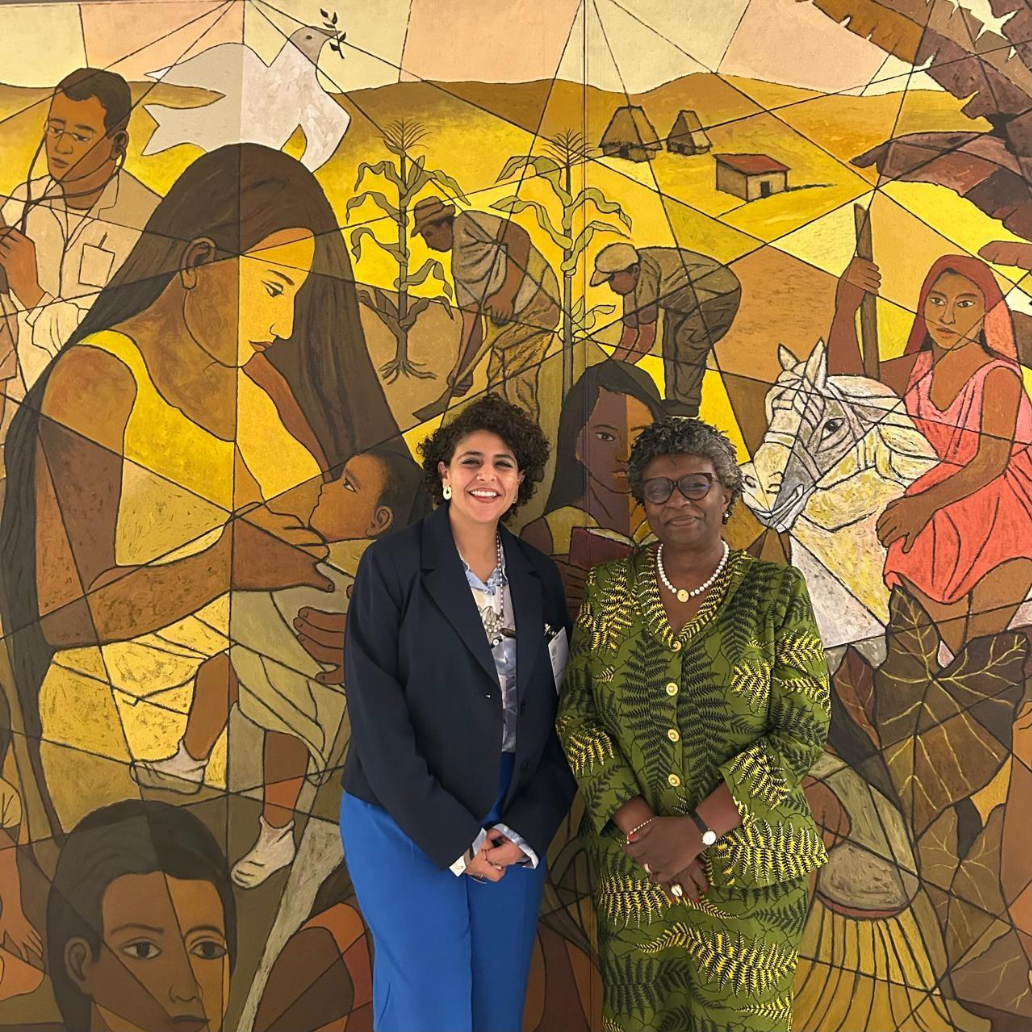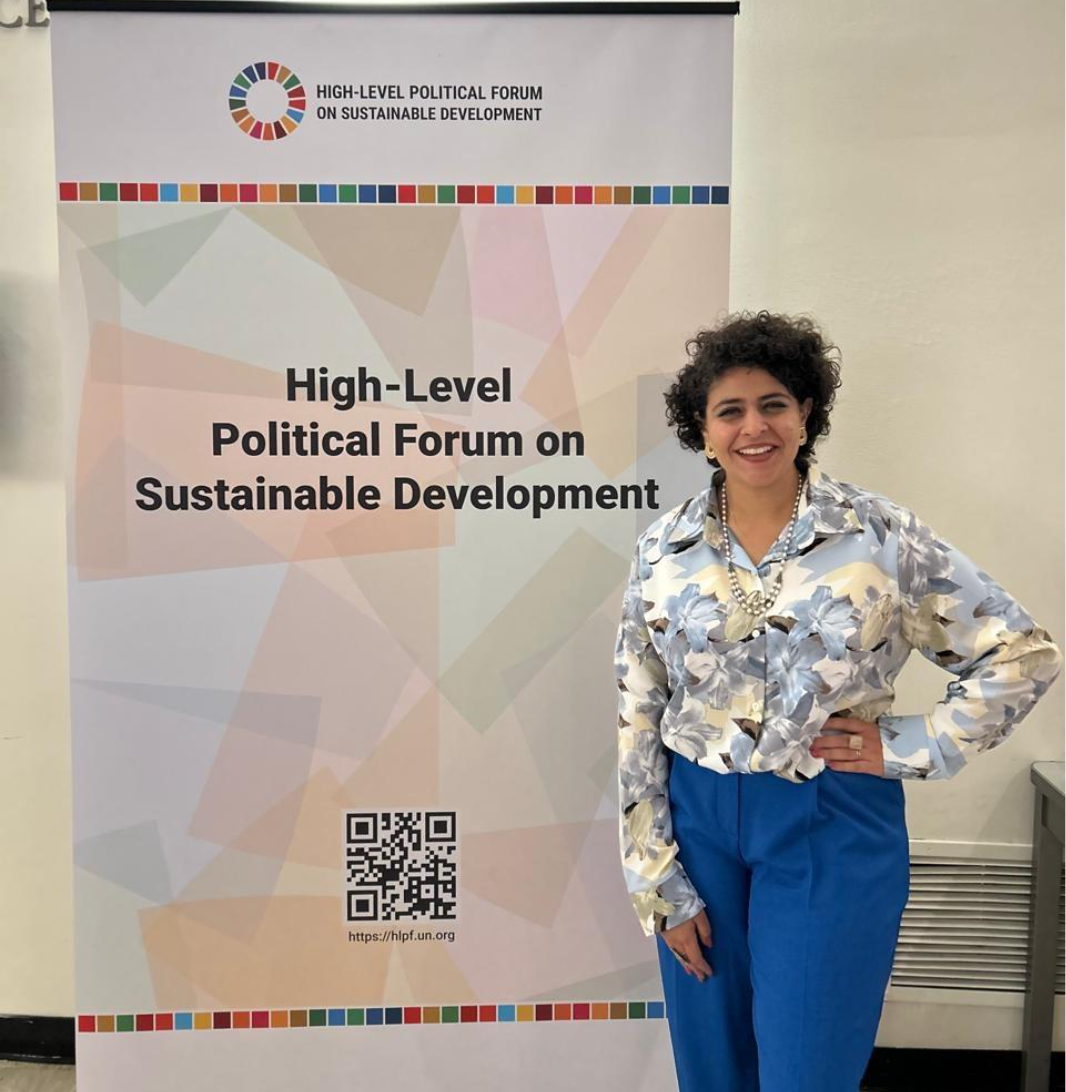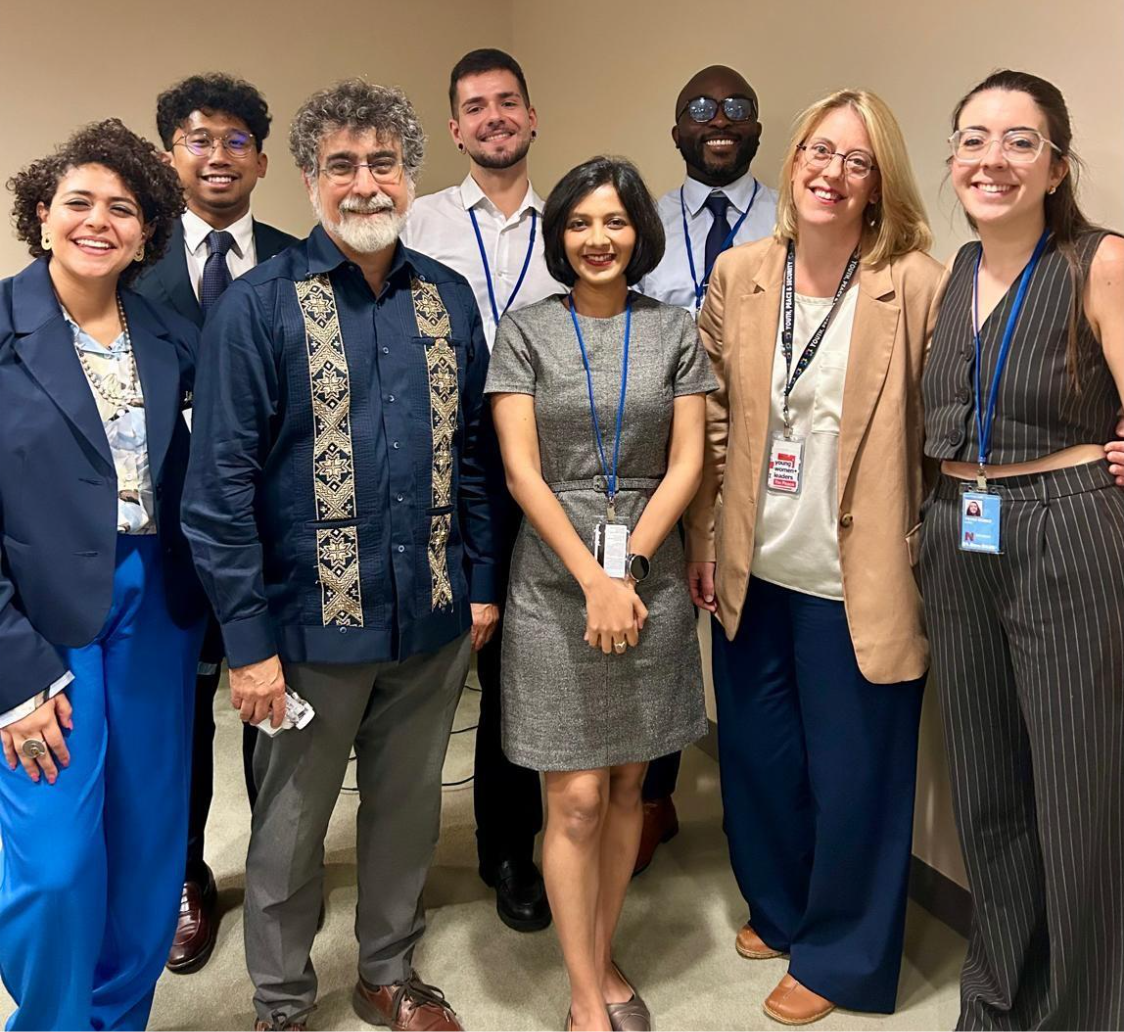On July 18th, we joined the UN High-Level Political Forum (HLPF), with one simple message: we cannot achieve the Sustainable Development Goals without investing in midwives!
Midwives are a key to advancing progress on at least 9/17 SDGs! Midwives contribute to ending poverty by creating jobs (SDG 1), reducing hunger by supporting breastfeeding and reducing malnutrition (SDG 2), advancing health by providing 90% of SRHMNAH (SDG 3), promoting gender equality by advancing women’s leadership, decision-making, employment, economic empowerment and rights (SDG 5), ensuring decent work (SDG 8), reducing inequalities by providing accessible essential care closer to communities regardless of socioeconomic status or geographic location (SDG10), advancing climate action by reducing health systems’ wastes, inefficiencies, and carbon footprint (SDG 13), advocating for peace and justice (SDG 16), and creating new multi-disciplinary and cross-sectoral partnerships to progress the SDGs (SDG 17).
What is HLPF 2025?
Every year since 2015, governments come together to the United Nations in New York to evaluate their efforts to achieve the 2030 Agenda for Sustainable Development and the Sustainable Development Goals (SDGs) at the UN High Level Political Forum (HLPF). This year, the HLPF theme was “Advancing sustainable, inclusive, science- and evidence-based solutions for the 2030 Agenda and its SDGs for leaving no one behind” and evaluated SDGs 3 (Good Health and Well-Being), 5 (Gender Equality), 8 (Decent Work and Economic Growth), 14 (Life Below Water) and 17 (Partnerships for the Goals).
Health Workers In Solidarity:
Frontline community advocates, youth, and health workers, including midwives, are not historically represented in these types of consultations. This year, we broke the status quo in solidarity with young people and frontline health workers for a side-event: “Reclaiming Health for All: Advancing Intergenerational Action on SDG 3 Through Health System Strengthening and Workforce Resilience”, co-organized by:

What needs to change urgently?
During the roundtable, we were asked to reflect on the most urgent changes needed to ensure gender equity, decent work, and safety across all levels of the health system. We advocated for 3 'M's:
Women—who make up 70% of the workforce and 90% of the midwifery workforce—still earn 24% less than men for the same work they do. Working mothers are the most affected.
Women—who make up 70% of the workforce and 90% of the midwifery workforce—only hold 20% of health leadership positions.
When women lead, communities are healthier, and health systems are stronger and more resilient.
We need to urgently address the gender pay gap in the health sector, secure decent work, and enable women, including midwives, to rise to leadership roles.

2. Move from evidence-based advocacy to action:
Midwives are considered the top best buys in global health with the highest return on investment (a 16 fold-return for every $1 invested).
The evidence for midwives is paramount. By investing in midwives, we can address up to 90% of SRMNAH needs, reduce our health system’s carbon footprint, advance gender equality, and add $1 trillion USD to the global economy by 2030.
Midwives make up only 10% of the global workforce with a shortage of 1 million globally.
We need to urgently close the gap.
3. Join the movement:
Real change requires collective action. Adding your voice and amplifying your support to movements supporting gender equality is crucial – Now more than ever. Together, we must translate advocacy into investment, visibility into power, and evidence into systems change.
We need to urgently demand change together.
Reclaiming Health for All, by All
Many countries still face chronic shortages, poor working conditions, gender inequities, and migration of health workers. These challenges are especially acute in low- and middle-income countries, fragile settings, and among vulnerable populations. In this context, strengthening domestic and international financing for health systems and the health and care workforce is not only an economic imperative but also a moral one.
The session brought together multigenerational leaders from across the health sector to highlight the centrality of the health and care workforce in achieving the SDGs, reflecting on the social, economic, legal, occupational, educational, and gender challenges, and the intersectoral actions needed to address them.
Here are some of our favorite takeaways:
